Events
Eastern Arc hosts a range of online debates, discussions and information events to help colleagues across the consortium to understand and engage with the issues that will affect them, their research and their innovation. We also support events held at our member institutions that fit with our ethos and our thematic priorities, and enable a wider group of colleagues to attend them.
These complement our position papers, which set out where we stand in relation to current issues in the wider research and innovation environment.
Where possible, we make the recordings and slides from these events available afterwards. Click on the links below to catch up with our past events, as well as finding out about those on the horizon.
-
This year our conference will focus on ‘Sanctuary Solidarities’, and the call for proposals is now open.
The Eastern Arc region has been shaped by migration and movement, and for centuries has offered refuge for those seeking sanctuary.
Never has this been more important — but also more challenging — than now. With the rise in far-right populism, violent conflict and the bolstering of borders, our conference this year will look at the part university staff and students can and should play in forging solidarities with those seeking sanctuary, but also at how they should participate in contested and increasingly polarised debates about migration.
As the UN High Commission for Refugees (UNHCR) celebrates its 75th anniversary, and the Cities of Sanctuary movement celebrates its 20th, this conference is a timely opportunity to hear from a broad range of stakeholders from within our region and beyond, to learn from their experiences, and to encourage positive and creative conversations between speakers and groups with differing viewpoints.
Conference themes
The conference will look at different types of solidarity within this space, and a series of breakout discussions will focus on:
- Academic solidarity
- Community solidarity
- Cultural solidarity
- Political solidarity
- Legal and human rights solidarity
- Health and wellbeing solidarity
Call for proposals
If you would like to either lead or take part in one of our breakout sessions, you can submit a proposal here. The closing date for submissions is 2 June 2025.
We want to encourage a wide range of voices and perspectives, including (but not restricted to):
- Academics and researchers working on issues of migration and sanctuary; conflict within, across, at and about borders; and the causes and consequences of political polarisation;
- Students and sanctuary scholars;
- Community groups;
- Politicians and policymakers;
- Cultural organisations;
- Health workers;
- Activists;
- Legal practitioners and human rights advocates.
We also encourage interdisciplinary and collaborative proposals that bridge academic research with practical implementation and community experience.
You can apply either to lead a session in your own right, or express an interest in taking part in any of the sessions, indicating the expertise and knowledge that you would bring to the subject.
Registration
The programme will be finalised once the proposals have been evaluated. Following this, registration will open in early July with a deadline of 11 August.
The conference will be free and open to all, but places are strictly limited and provided on a first come, first served basis. Transport will be available from the other three EARC universities (UEA, Essex, Kent) to Sussex on the day.
Further information
For further information, contact info@easternarc.ac.uk
-

The first Eastern Arc Health Conference for early career researchers (ECRs) will take place at the University of Essex on 8 July 2025.
Co-hosted and led by the University of Essex School of Health and Social Care and the Institute of Public Health and Wellbeing, the Conference will bring together early career researchers and practitioners across the four Eastern Arc institutions (Universities of East Anglia, Essex, Kent, and Sussex) to share their research and imagine the future. This is an opportunity to showcase ideas, network, discuss research, receive feedback, and develop new collaborations across the South East and East of England.
Conference registration
Registration for the conference is now OPEN! Colleagues from the Universities of East Anglia, Essex, Kent and Sussex can now register by clicking on the button below.
The conference is free to attend, and buses will be arranged from the campuses of UEA, Kent and Sussex, to the University of Essex (and back). The transport is free-of-charge and is available on a first-come-first-served basis, as spaces are limited. Please register as soon as possible if you would like to book the pre-arranged transport (you can select this option when registering).
Final deadline for registration: 8th June 2025
-
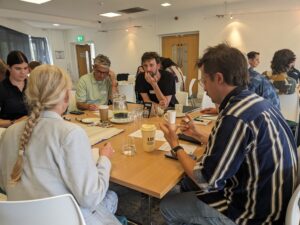 We are delighted to be able to announce the date of our next Eastern Arc Technicians’ Network Conference. It will take place at the University of Kent on 27 June 2025. The event is being organised by technicians and is intended to be relevant, useful and informative for technicians.
We are delighted to be able to announce the date of our next Eastern Arc Technicians’ Network Conference. It will take place at the University of Kent on 27 June 2025. The event is being organised by technicians and is intended to be relevant, useful and informative for technicians.As well as bringing together technicians from the four Eastern Arc universities (UEA, Essex, Kent and Sussex), the Conference will also host the Kent Technicians Network, which includes Canterbury Christchurch University and the University of Greenwich.
It will be an unmissable opportunity to talk to colleagues working in technical services across the region, to share knowledge, to ask questions, and to hear about the wider work going on nationally. It will also be a chance to tour the facilities and equipment at the University of Kent.
Details are still being discussed, but do save the date, and we very much look forward to seeing you there.
If you want to find out more about the Technicians’ Network or want to get involved, go to our dedicated page here.
-
You’re invited to the launch of T-PIKE, the Technical Platform for Innovation and Knowledge Exchange.
To register, please click here.
Join us to learn how the programme will help Research Technical Professionals (RTPs) at Eastern Arc universities and external industry partners connect and initiate Knowledge Exchange (KE) activities.
You will also have the chance to:
- Meet the operational and leadership teams supporting T-PIKE
- Discover the opportunities available through the T-PIKE programme
- Network with fellow RTPs and businesses to discover common links and skills that can be nurtured and facilitated through T-PIKE
Sign up today to secure your place.
EVENT AGENDA:
10:00 – 11:00: Arrival, coffee, networking
11:00 – 12:00: Presentations Introducing T-PIKE
- Welcome and introduction to Eastern Arc: Phil Ward, Director of Eastern Arc
- Technical development opportunities: T-PIKE Leadership Team: Edd Codling (PI), Chris Spice (Technical Lead, Essex), Jo Scamp (Technical Lead, Kent), Alex Morritt (Technical Lead, UEA)
- Knowledge Exchange (KE) opportunities: T-PIKE Operations Team: Phil Wilson (Programme Manager), Kirsty Herrington (KEO, Essex), Beth Dawson (KEO, Kent), Liz Davis-Smith (KEO, UEA)
- KE Case Study: Waterless Distillation System: Matthew Bennett, University of Cambridge
12:00 – 14:00: Lunch and networking. Including the opportunity to engage in person with industry partners, technicians and KE team members to discuss project ideas and explore general opportunities within the T-PIKE programme.
This event is being hosted by the University of Essex as a member of the Eastern Arc consortium of universities.
Please note: Photography and filming will take place at this event for promotional and archival purposes. Any photos and recordings will likely appear in marketing materials across our websites, social channels and printed media. If you do not want to be included, please let a member of the University of Essex team know on the day or email TPIKE@essex.ac.uk.
-
As part of a Kent programme of events, I’ll be leading a session to help Eastern Arc colleagues understand the wider political context for research funding in the UK.The presentation will give colleagues a ‘cheat sheet’ for the political context in which the Government is distributing a record-breaking £20.4bn of R&D funding this year, and to an understanding of its explicit and implicit priorities. More details here.
-
Writing your first grant proposal can be both confusing and intimidating, and early-career researchers can be put off applying. Rob Hodges, Research and Innovation Officer (Pre-Award) at the University of Kent, has a long track-record of helping colleagues to identify and access funding, and will be providing an overview, guidance and support to demystify the process. He will also be inviting academic guest speakers to join him. More details here.
-
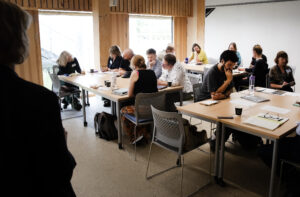 Eastern Arc strongly supports the principles of open access and the broader principles of open research. Our Open Access and Scholarly Communications Group is leading our strategy in this area, and you can find out more about its work here.
Eastern Arc strongly supports the principles of open access and the broader principles of open research. Our Open Access and Scholarly Communications Group is leading our strategy in this area, and you can find out more about its work here. As part of its work and where appropriate, we share resources and training across the Arc. One such opportunity is the University of Essex’s Open Research Week, which it runs in collaboration with Edge Hill University, Liverpool John Moores Univesity and the University of Liverpool.
Colleagues across Eastern Arc are welcome to take part, and we encourage you to share the programme far and wide! Full details of the sessions (together with registration details) are below.
-
This event was designed to give you insight into perhaps the least well understood part of Horizon Europe – Pillar III : Innovative Europe.We were joined by Claire Griffin, UK National Contact Point (NCP) for European Innovation Council (EIC) and European Innovation Ecosystems (EIE) in Horizon Europe and Global Innovation Lead at Innovate UK. Claire has an extensive knowledge of the European Innovation landscape and of European Funding in general and has generously given her day to engaging with Eastern arc colleagues on this topic.
Programme
10.00 Welcome and Aims of the Event (ST)10.05 An exploration of EIC – Europe’s flagship innovation programme (CG)- EIC Pathfinder – taking forward breakthrough deeptech projects with a high degree of scientific and technological ambition & risk and potential to create new markets
- EIC Transition – validate technologies and develop business plans for specific applications.
- EIC Accelerator – open to single SMEs and start-ups to develop and scale innovations with the potential to create or disrupt markets.
10.45 Experiences of being a Pathfinder Award Holder- Sheng Qi, Professor of Pharmaceutical Material Science and Technology, University of East Anglia
- Professor Nigel Mason Professor of Molecular Physics, University of Kent
- Jeff Hartnell Professor of Physics and Astronomy, University of Sussex
11.15 Q&A11.30 BREAK12.00 Evaluation process for EIC Pathfinder & EIC Transition (CG)13.00 Q&AResources from the event
Slides from the event are available on our dedicated website here.
-
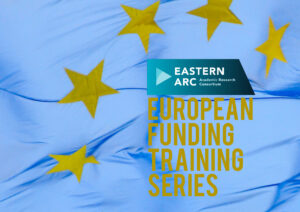 Being well connected is an essential requirement for anyone looking to successfully engage with international funding programmes, such as Horizon. But how can you best grow and maintain those networks ? What support is available ? Where should you start ?
Being well connected is an essential requirement for anyone looking to successfully engage with international funding programmes, such as Horizon. But how can you best grow and maintain those networks ? What support is available ? Where should you start ?This on-line event is designed to get you going with your network building activities. Led by University of East Anglia’s European and International Funding lead, Ian Beggs, Ian has over 10 years experience of engaging with EU funding and has a wealth of knowledge and expertise to share.
In this session, you will learn about:
- Funding opportunities that can support building international contacts and networks;
- How to search for funding calls of interest;
- Interpreting funding calls and the key eligibility considerations;
- The importance of interdisciplinarity;
- Capturing your ‘Unique Selling Point’ (USP) (your potential research ‘contribution’ to a collaborative proposal); and,
- Finding and engaging potential partners/coordinators.
The session is intended to be as interactive as possible – with plenty of opportunities for you to ask questions.
Places are FREE to all Eastern arc staff but do REGISTER so that we have an idea of numbers.
-
 Eastern Arc will be hosting Dr Jonathan O’Donnell at the University of Kent on 14 November to deliver two sessions on navigating the funding landscape and developing a career narrative.
Eastern Arc will be hosting Dr Jonathan O’Donnell at the University of Kent on 14 November to deliver two sessions on navigating the funding landscape and developing a career narrative.Jonathan is an Australian academic and research developer at Deakin University. He has a passion for helping academics navigate the tricky world of research funding, and has previously worked at both Melbourne University and RMIT.
He created the iconic Research Whisperer community and learning resource with colleague Tseen Khoo, which is dedicated to supporting, encouraging and working together with academics to navigate life in academia, and particularly in securing research funding.
Finding funding and developing a career narrative
 The programme for the day is given below. Registration is at the bottom of the page. You can take part regardless of your career stage, but we’ve given an indication of who the primary audience will be.
The programme for the day is given below. Registration is at the bottom of the page. You can take part regardless of your career stage, but we’ve given an indication of who the primary audience will be.10:30: Arrival
Tea, coffee and pastries will be available
11:00-13:00: Think like a kindergarten
There are about 15,000 research funders globally, and between them they give out some $2 trillion. It is a confusing landscape, and can be intimidating to navigate. This session will provide you with a routemap and waymarkers to help you find the most appropriate funding bodies for you, and to develop a strategy for applying to them.
- Intended audience: late-stage PGRs and early-career researchers
13:00: Lunch
14:00-16:00: Narrative of Ideas
As academia becomes increasingly competitive and many of those starting out have to move from fixed-term contract to fixed-term contract, it can be difficult to present a coherent career narrative to both funders and prospective employers. This session will explore how you can present your career in a way that is clear, coherent and compelling, and supports your case for support.
- Intended audience: early to mid-career researchers
16:00: Close
Registration
The sessions are free and open to all, and you can register for either one or both of them. The closing date for registration is 3 November.
A limited number of travel bursaries will be available; if the demand is such we may consider providing minibus travel from the other EARC universities. If you would like to request this, please complete the relevant part of the registration form
-

This event was developed to enable participants tohear – first hand – from academic colleagues who have been / and still are involved in collaborative research and innovation projects funded by the EU. Designed as a panel discusison, it was chaired by Eastern Arc Director, Phil Ward.
The panellists were :
- Andy Jordan, Professor of Environmental Sciences, University of East Anglia
- Silvio Caputo, Senior Lecturer in Architecture, University of Kent
- Heike Rabe, Professor in Paediatrics, Brighton and Sussex Medical School, University of Sussex
- Haris Mouratidis, Professor in Computer Science and Electronic Engineering, University of Essex
A recording of the event is available here.
-
 Eastern Arc teamed up with UKRO and COST to present an overview of Horizon Europe, and outline how academics and researchers can get involved.
Eastern Arc teamed up with UKRO and COST to present an overview of Horizon Europe, and outline how academics and researchers can get involved.Dr Antonino Puglisi, European Advisor with UKRO and Herbee Thomas, C.O.S.T UK National Coordinator, Department for Science, Innovation and Technology led the session. Antonino talked about UKRO’s role in supporting UK universities to engage with Horizon Europe, and provided an overview of the many different research and innovation funding opportunities available within Horizon Europe. Herbee provided an introduction to the COST programme.
Recording
Slides
-
 The East and Southeast of England are rich in both built, cultural and natural heritage. Their long histories of trade and transport, religion and warfare, migration, pilgrimage and pleasure have meant that the regions have a significant number of heritage assets.
The East and Southeast of England are rich in both built, cultural and natural heritage. Their long histories of trade and transport, religion and warfare, migration, pilgrimage and pleasure have meant that the regions have a significant number of heritage assets.Many of these benefit local communities economically, but also give a sense of identity and pride to them. As such they can play an important part in individual wellbeing and social cohesion.
This one day conference will explore this to identify ways that universities, regional and national organisations, and local communities can work together for the benefit of all and to safeguard future prosperity.
The conference is open to all, within the EARC region and beyond, but places are limited. It is free to attend and dedicated transport will be available from the EARC centres of Brighton, Canterbury and Colchester.
-
Our annual Tecnicians’ Network will be taking place at the University of Sussex on 23 July 2024. We would be delighted to see you there, so do please save the date.
This event will be a chance for all four member
 universities of the Eastern Arc to meet and work together as a network on meeting the Technician Commitment.
universities of the Eastern Arc to meet and work together as a network on meeting the Technician Commitment.The agenda will be established closer to the event, but we hope to have elements linked to technical career pathways, highlighting successes, chances for group discussion and tours, as well as pastries, coffee and a nice lunch.
Please register for a ticket to this event so we can cater for the right number of people.
-
Building on last year’s RAIL report on the challenges facing mid-career researchers (MCRs), Eastern Arc will be running a pilot training programme to develop the skills and knowledge of MCRs to enable them to succeed in their careers.
The training is run by Dr Kelly Pickard-Smith and Dr Amy Bonsall. Kelly and Amy are honorary professors at Kent, award-winning directors of WIASN and long-time champions of mid-career researchers,
It is open to any self-identified MCR at an Eastern Arc university (UEA, Essex, Kent, Sussex), but places are strictly limited and are allocated on a first come, first served basis.
To register, please complete this short form; it should take no more than a minute.
Background
In 2023 Eastern Arc commissioned WIASN to undertake a survey of MCRs to identify the barriers and enablers for their career development. One of the key findings of the resultant report was that over 62% of respondents felt that there was a lack of training and mentoring for them, and almost 80% felt that their universities did not provide a good level of career support at mid-career stage. This programme seeks to address this.
Structure
The training programme consists of:
- June 2024: Four two-hour online sessions, taking place between 11:00-13:00 each Friday in June.
- 5 July 2024: One in-person day-long training event at the University of Kent.
Programme
Online training sessions (June 2024)
The training sessions will be based on a ‘flipped learning’ model. Prior to each session participants will complete an online workbook of activities that will form the basis of the training.
- Session 1: Defining your personal success story and situating your career
The aim of this session is to objectively evaluate your career holistically, to better understand where you are in terms of current and future goals, and to identify the barriers and enablers to your success.
- Session 2. Exploring the relationship between the university’s aims and objectives and your own career success
This session aims to help you better understand and explore ways in which your research and teaching can both meet the university’s objectives and priorities while also fulfilling personal and disciplinary research and teaching priorities.
- Session 3. Career chameleon and the importance of the career pivot for sustainable careers
This session will explore the cohesive thread in your research and teaching that situates you within your field and ways in which this grounding can enable you to explore or pivot your research into new and emerging contexts to keep your research relevant.
- Session 4. You as a leader
This session will help you identify ways in which you lead and how this manifests in terms of thought leadership, ideas, social movements, leadership of people and budgets.
One day training event (5 July 2024): How to be a manager
This in-person event is intended to help you understand the multi-functional team that supports you in your role as a manager, and where you can seek and expect support.
- Morning session: procedural training, including an introduction to popular leadership and management theory, the importance of matrix-working, and the team around the manager/leader. It will also look at how to develop yourself as a leader of people, budgets and resources.
- Afternoon session: a consolidation session bridging the procedural elements of good leadership and management with personal leadership and management style through interactive and creative play.
-
The second Eastern Arc Law Colloquium will take place on 24-25 June 2024 at UEA. Full details are below:
Monday 24 June
12:00 – 13:00
Lunch13:00 – 13:15
Introduction & Welcome13:15 – 14:45
Panel 1: International Human Rights Law and Humanitarian Law
Chair: Joel Colón-Ríos (Essex)- Vanessa Topp (Essex): International Human Rights Law as a Basis for the Right to Receive and Provide Humanitarian Aid and Assistance – A Tool for Countering the Criminalisation of Humanitarian Aid and Assistance to Migrants?
- Leonard Chimanda Joseph (Sussex): The Role of the Global Compact on Refugees Towards the Identification of Durable Solution(s) for Self-Settled Refugees in Kigoma Villages in Tanzania
- Boudicca Hawke (Essex): The Status of Fighters in Non-International Armed Conflict
- Furkan Cirkin (Essex): What is the Transnational Bourgeoisie?
14:45 – 15:00
Coffee break15:00 – 16:30
Panel 2: Development, Human Rights and Economic Actors
Chair: Anil Yilmaz-Vastardis (Essex)- Juliet Ibekaku-Nwagwu (Sussex): Use of Proceeds of Corruption for Sustainable Development
- Tezzeta Mbuya (Essex): The Africanization of the International Dispute Resolution Mechanism in Light of the Adoption of the AfCFTA Investment Protocol
- Emma Baldi (Essex): Reparation for Business-Related Human Rights Abuses
- Anthony Obi (Essex): The Impact of Legal Education and Ethics on Access to Justice for Victims of Multinational Oil Corporations in Nigeria
16:30 – 16:40
Coffee break16:40 – 18:00
Panel 3: International Law
Chair: Avidan Kent (UEA)- Sebastian Schnorrenberg (Essex): The End of Non-Intervention and the Information Environment
- Tatjana Grote (Essex): Managing Multidimensionality: How to Conceptualise Civilian Personal Data Within International Humanitarian and Human Rights Law?
- Benjamin Khastan (Essex): Artificial Intelligence at the International Criminal Court
- Zana Syla (UEA): The International Legal Personality of States in Relation to ‘Contested States’
18:00
Dinner
Tuesday 25 June
9:15 – 9:30
Welcome Day 2 & Coffee9:30 – 10:45
Professional Development: Research Methods
Focus on doctrinal approaches, socio-legal methods, and law and economics with:- Prof Joel Colón-Ríos (Essex)
- Prof Kirsten McConachie (UEA)
- Dr Sebastian Peyer (UEA)
10:45 – 11:00
Coffee break11:00 – 12:30
Panel 4: Law and Technology
Chair: TBC- Dilanur Demir (Essex): Technical Specifications of Blockchain and Legal Challenges on Data Erasure in the EU
- Patricia Claudet (UEA): The Meta Platforms Case in the European Court of Justice: Where Does It Lead the Regulation of Digital Markets in Europe?
- Tahircan Yedek (Essex): From Gatekeepers to Private Authorities: Does Fighting Political Disinformation Privatise Democracy?
12:30 – 13:30
Lunch13:30 – 15:00
Panel 5: Climate Action and the Role of Law
Chair: Marianna Iliadou (Sussex)- Enitan Lawson (Essex): Towards a Just Energy Transition: The Role of Natural Gas in Nigeria’s Energy Transition
- Millie Proser (UEA): Towards a Bespoke Climate Litigation Impact Framework: Lessons from Human and Socio-Economic Rights Scholarship
- Charlotte Semarcelle (UEA): Climate Litigation and the Role of Tort Law
15:00 – 15:10
Break15:10 – 16:40
Panel 6: Regulation of Markets
Chair: TBC- Alia Kahwaji (UEA): Safeguarding a Human-Centric Patent System: The Case of the Inventive Step Test
- Minh Dang (UEA): Rethinking Efficiency Considerations in Merger Control
- Tugrul Erdogan (Essex): Consumer Protection Risks of Open Banking in the EU, the UK, and Turkey
16:50 – 17:30
Closing: Wellbeing and the PhD Journey
Dance and the Law with Dr Maria Moscati (Sussex) -
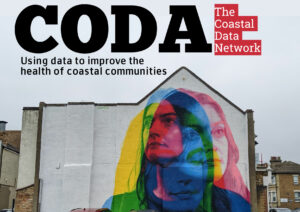
Innovation Centre, University of Essex
13 May 2024
Registration is now open for our first Coastal Data (‘Coda’) Network workshop, in partnership with the Essex Centre for Coastal Communities. It will explore how local authorities, NHS trusts, ICBs and others can tackle the issues around the collection, analysis and use of data relating to coastal communities.
The event is free and open to all. To attend, fill in this simple form by 6 May 2024 at 12noon.
Background
In 2021 the Chief Medical Officer looked at health in coastal communities, and highlighted that the available data on health and wellbeing were poor and lacked granularity. He recommended that this should be addressed to support the development of policies aimed at improving the health of coastal communities.
This one-day workshop will take a step towards this. Led by the Eastern Arc Coastal Data (‘Coda’) Network, it will be an opportunity to work together to address key issues identified through the EARC workshops on coastal health data held in July 2022.
It is open to all and a wide group of stakeholders are encouraged, from local authorities to NHS trusts, from universities to charities, businesses and community groups.
Provisional programme
Morning
10:00 Opening remarks and welcome
Phil Ward, Director of Eastern Arc
10:10 Setting the scene
10:10 Opportunities and challenges of using data to understand the health of coastal populations
Tim Winters, Senior Health Intelligence Lead (Insight & Analytics), NHS Norfolk and Waveney ICB
10:45 Practitioners’ perspectives
Colleagues from Suffolk County Council and East Suffolk District Council (TBC)
11:30 Coffee
11:45 Workshop session 1: Access, trust and empowerment
Provocateur: Anna Crispe, Assistant Director, Knowledge, Intelligence & Evidence, Suffolk County Council
At the EARC workshop it was recognised that data owners could be risk averse in allowing access to their data, and that there was a need to develop relationships of trust to empower the owners. But how can this be done? The morning workshop will examine the experience of local authorities and ICSs during the pandemic, when there was more openness and willingness to share data and intelligence. Can this be embedded on a long-term basis, and what practical steps could be taken to train, enable and empower data owners to enable wider access to the data?
13:15 Lunch
Afternoon
14:00 Workshop session 2: Measuring health and deprivation at small area level
Provocateur: Dr Emily Murray, Director of the Essex Centre for Coastal Communities
Relatively little work has been done on using the ONS indices of deprivation to identify the causes of ill-health, including mental health, in coastal communities. The afternoon workshop is intended to build on lessons learnt from previous work (such as the identification of the Glasgow Effect, and Andy Jones’ work on rural deprivation) to develop the data and the methods necessary to identify the links between the environment and poor health.
15:30 Coffee
15:45 Final plenary: Next steps
The speakers and provocateurs will summarise key points to arise from the workshops, and discuss next steps following the workshop.
6:00 Closing remarks
Phil Ward, Director of Eastern Arc
16:15 Wine reception
Delegates are invited to talk informally with others, to make connections and share thoughts on what they have heard during the course of the day.
-
Eastern Arc was asked to host the first of MRC’s new format regional events, intended to engage with stakeholders within a region rather than a select number of MRC-funded institutes and universities with considerable MRC funding. It was hosted at Essex on 17 May, and slides from the MRC briefing are available here.
-
 Registration is now open for our immersive technologies workshop at Stratford Hub on Monday 25 March 2024 between 09:30-16:00. The workshop is open to anyone at one of the four EARC universities (UEA, Essex, Kent, Sussex) with an interest and engagement in immersive technologies for research or teaching. To apply, please fill in this form by Monday 18 March at 12:00.
Registration is now open for our immersive technologies workshop at Stratford Hub on Monday 25 March 2024 between 09:30-16:00. The workshop is open to anyone at one of the four EARC universities (UEA, Essex, Kent, Sussex) with an interest and engagement in immersive technologies for research or teaching. To apply, please fill in this form by Monday 18 March at 12:00.Background
The Government is prioritising new technologies – including AI and XR – to address key economic and social drivers. This is clear in a range of recent strategies and funder priorities.
The fifth objective in UKRI’s Strategy focuses on world-class impacts, including ‘harness[ing] the opportunities from tomorrow’s technologies’ (5.2). This leads through to AHRC’s intention to ‘extend the success of research and innovation-driven creative industries into new sectors, partnership and places,’ EPSRC’s ‘Digital Futures’ mission, and the ‘AI, Digital and Advanced Computing’ technology family of the Innovation Strategy.
The Eastern Arc universities are well positioned to benefit from this. Their centres and facilities include:
- Kent’s Institute for Cultural and Creative Industries, which has secured £15m to develop state-of-the-art digital production studios (called Docking Station) including LED volume, motion capture, volumetric capture and photogrammetry;
- The Sussex Humanities Lab (SHL), an interdisciplinary Centre of Excellence that investigates the interactions between computational technology, culture, society and environment;
- Essex’s School of Computer Science, Electronics and Engineering (CSEE), which has a strategic focus on Robotics and Embedded Systems, Brain Computer Interfaces and Neural Engineering;
- CreativeUEA, which enables and facilitates interactions across and beyond the University in using tomorrow’s technologies creatively and productively.
All four universities sit within a region where there is a strong need for future-facing skills training (particularly in its coastal communities), but also where there is a strong cultural and creative sector.
 Purpose
PurposeThis facilitated workshop seeks to identify clusters of interdisciplinary strength and will develop partnerships within them. By doing so we will:
- be ready for future funding calls, able to quickly develop strong, compelling and viable proposals.
- be able to share knowledge, training and resources for both staff and students across a range of areas, within and beyond computer science and the cultural and creative disciplines.
- be well-positioned to work with businesses to develop commercial opportunities.
Participants
There will be a limit of 40 spaces. Colleagues from all disciplines at the four Eastern Arc universities (UEA, Essex, Kent and Sussex) are welcome, and the organisers are keen to welcome those in a broad range of disciplines who see the potential to use the technology in their research and teaching, including (but not limited to) medicine, psychology, conservation, archaeology, history, heritage, computing/digital design and sports and exercise sciences.
Format
The format is to be finalised, but will broadly be as follows:
- Demonstration: we hope that some immersive technology will be demonstrated and available for participants to try.
- Provocation: what is the direction of travel for government policy and funder strategy in this area?
- Are there key themes that will be prioritised?
- Overview: an overview of the current strengths at each university.
- Discussion: a facilitated workshopping session to discuss how these strengths can map on to the themes.
Outcome
By the end of the workshop we aim to have identified a small number of areas of clear strength that are shared across Eastern Arc, which map onto government and funder priorities and give scope for creative development. These will be developed further through collaborations (visits, exchanges, workshops, projects, training) after the workshop.
-
 In 2023 Eastern Arc commissioned WIASN to undertake a survey of MCRs to identify the barriers and enablers for their career development. One of the key findings of the resultant report was that over 62% of respondents felt that there was a lack of training and mentoring for them, and almost 80% felt that their universities did not provide a good level of career support at mid-career stage.
In 2023 Eastern Arc commissioned WIASN to undertake a survey of MCRs to identify the barriers and enablers for their career development. One of the key findings of the resultant report was that over 62% of respondents felt that there was a lack of training and mentoring for them, and almost 80% felt that their universities did not provide a good level of career support at mid-career stage.Following this, Eastern Arc will work with WIASN to develop appropriate and meaningful training for MCRs that will empower them in gaining the skills, knowledge and experience necessary to proactively develop their careers.
As a first step towards this, we will host a town hall meeting on Friday 17 November between 13:00-15:00 (online). The two hour session will start with an introduction to the findings of the report by its authors. This is intended to encourage and provoke a discussion about the form and content of training that would be most effective for MCRs.
Participants
We want to hear a diversity of views and voices on MCR training. This includes but is not limited to:
- Mid-career researchers
- Senior leaders responsible for MCRs
- Early career researchers who are moving towards being an MCR
- Researcher development colleagues
- Research development officers, and others in R&I Services
- Others in professional services with some responsibility for training and development
Take part
To take part, sign up here. It shouldn’t take more than 60 seconds to complete.
If you aren’t able to make it on the day please fill in the form and tick the box saying you won’t be there, but giving permission for us to contact you by Teams/email to discuss possible ideas for training.
-
 As part of Eastern Arc’s work to open up training events and information days to colleagues across the Consortium, we are delighted to provide details of the Open Access Week events taking place at the University of Essex.
As part of Eastern Arc’s work to open up training events and information days to colleagues across the Consortium, we are delighted to provide details of the Open Access Week events taking place at the University of Essex.These are free and open to all colleagues across Eastern Arc. They are virtual, and will take place via Teams. To register, click on the link next to the event.
In addition to this series of events, the EARC OA and Scholarly Communications Group has published the second edition of its Open Access primer, OA: 12 Key Concerns Answered. Click here to download it free.
Programme details
This year, the global research community celebrates Open Access Week from the 23rd to the 29th of October. The theme focuses on community over commercialization, and with this in mind the University of Essex and the University of Derby are co-organising a week-long series of events.
We are excited to be joined by expert guest speakers and panelists from across the UK and Europe, including colleagues from the University of Essex and the University of Derby, to celebrate and showcase how Open Access and Open Research endeavors are challenging the status quo.
- Oct 23, 11:00am: Abeni Wickham- SciFree – Revolutionizing academic publishing, reducing costs for libraries, and empowering researchers. Details and booking.
- Oct 24, 10:00am: Panel – Short Form Publications – Exploring challenges and progress in open access publishing. Details and booking.
- Oct 25, 10:00am: Malvika Sharan – Open Science for Reproducible Research – Emphasizing transparency and ethical practices. Details and booking.
- Oct 26, 11:30am: Panel – Open Access Books – Discussing benefits, challenges, and global access. Details and booking.
- Oct 27, 2:00pm: Tim Fellows – Octopus – Innovative publishing model for collaboration and recognition. Details and booking.
-
Our food system is increasingly dysfunctional. Events such as the pandemic and the Ukrainian war have demonstrated how fragile it is, with production and supply disrupted and costs spiralling. When food is available, there is a fierce debate about the nutritional benefits of processed products, the long-term impacts on population health, and even the morality and sustainability of dietary choices.
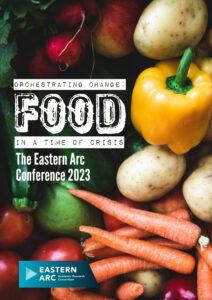 The annual Eastern Arc Conference, taking place on 20 September, will be a chance to debate these issues and look at solutions. The Consortium is well placed to do so, as it stretches across a region that has been shaped and defined by food. From the breadbasket of England on one side of the Thames to the garden on the other, the East and South East accounts for a third of England’s total income from farming (TIFF), and around two thirds of the country’s food imports come through the region.
The annual Eastern Arc Conference, taking place on 20 September, will be a chance to debate these issues and look at solutions. The Consortium is well placed to do so, as it stretches across a region that has been shaped and defined by food. From the breadbasket of England on one side of the Thames to the garden on the other, the East and South East accounts for a third of England’s total income from farming (TIFF), and around two thirds of the country’s food imports come through the region.This is underscored by the strong food, nutrition and dietary research being undertaken in the region’s universities and independent research facilities. These include the Norwich Research Park (home to the John Innes Centre and the Quadram Institute), Cefas, and NIAB East Malling, as well as initiatives and centres based at the EARC universities such as Growing Kent and Medway, CoFarm, Essex Plant Innovation Centre (EPIC), Who Buys My Food?, the Norwich Institute for Healthy Ageing (NIHA), and Kent’s Right to Food.
We are now opening a call to take part in or lead one of the eight conference sessions. We very much want to hear a diversity of voices and viewpoints, whether they be asking questions or offering solutions, sharing research or encouraging engagement. We want to hear from researchers and stakeholders, academics and businesses, community groups and charities.
If you have an idea for a session, please complete this simple form by Monday 17 July. We hope to select the eight sessions shortly after, and open up registration at the beginning of August. The conference itself will take place in the Sibson Building at the University of Kent in Canterbury. It will be free and open to all, and registration will open in August.
-
 The University of Kent hosted a webinar on Leverhulme Research Centres and extended the invitation to academic and professional services staff across the Eastern Arc.
The University of Kent hosted a webinar on Leverhulme Research Centres and extended the invitation to academic and professional services staff across the Eastern Arc.The speakers were Dr. Stephen Cave, Director of the Centre for the Future of Intelligence (Cambridge) and Dr. Adriana Ford, Centre Manager for Leverhulme Centre for Wildfires, Environment and Society (Imperial).
A recording of the session is available here.
Leverhulme Centres
Leverhulme’s flagship funding scheme offers up to £10m over 10 years for UK universities to set up a Research Centre for … “outstanding original research aspiring to achieve a step-change in scholarship.” The choice of research topic is open – with the usual exclusion of studies of disease, illness and disabilities in humans and animals; and research intended to inform clinical or medical practice. The chosen area should be sufficiently large-scale to support an ambitious but realistic research agenda for 10 years; and Centres may be single-site (one university) or multi-site (hub and spokes) – including international universities, where appropriate.
The Leverhulme Research Centre competition does not run to a fixed schedule. However, historically there has been a call approximately every three years. The previous invitation for applications took place in 2021. We are therefore anticipating a call launching late in 2023, with a deadline in 2024.
-
 The University of Essex is hosting a post-graduate forum on Tuesday 18 July 2023 (2-5pm) and is inviting PGRs from across Eastern Arc to join the discussion. Funding is available to help with travel if this is a potential barrier to you taking part.
The University of Essex is hosting a post-graduate forum on Tuesday 18 July 2023 (2-5pm) and is inviting PGRs from across Eastern Arc to join the discussion. Funding is available to help with travel if this is a potential barrier to you taking part.The subject for the forum is records and responsible government. As the next generation of researchers,they are seeking to understand how archival accessibility has shaped on-going research projects and how it will continue to have an impact or expected impact.
They hope to build a network of researchers from different institutions and disciplines in order to foster future research, collaboration, and discussion. Therefore, they are working to establish new connections by inviting post-graduates to attend and contribute to this discussion.
There will be a pizza lunch at 1PM for a 2PM start.
If you are interested in attending this event to share your experiences of records and responsibility, please fill out this Google Form by 10 AM on Friday 7 July.
They have 30 spaces available and standard-class travel to the University of Essex will be reimbursed for all those attending who do not have access to institutional funding.
For more information about the event or the Records and Responsible Government please contact Liam Redfern – LR17313@essex.ac.uk
-
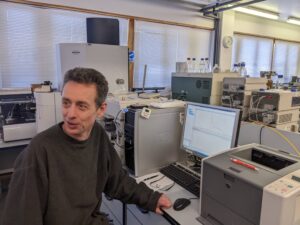 Registration is now open for the EARC Technicians’ Network Symposium, taking place on 7 July at the University of Essex. The event is open to all technical staff from the universities of Essex, East Anglia and Kent.
Registration is now open for the EARC Technicians’ Network Symposium, taking place on 7 July at the University of Essex. The event is open to all technical staff from the universities of Essex, East Anglia and Kent.The Network aims to build and create a supportive cross-institutional community by technicians for technicians.The symposium is the launch event for the Network. Funded by the Gatsby Foundation and the University of Essex, it will bring together technical staff from across the three universities.
It is an opportunity to share best practice, create continued professional development and knowledge exchange opportunities, and develop strong and robust avenues of communication across the universities to ensure that all technicians have the opportunity to be involved in the network.
Register
The event is free and open to all technical staff at the three universities, and travel will be provided. However, places are limited, and will be given on a first come, first served basis. To register, click here.
If there are spare places, these will be made available to those beyond Eastern Arc closer to the event.
Subscribe to the Network’s new mailing list
As well as the symposium the Network has set up a mailing list to keep technical staff updated on events, issues and opportunities of interest to them. We welcome your ideas, knowledge and experience in making this network an effective and sustainable tool for the technical community. To subscribe, click here.
More information
To find out more about the Eastern Arc Technicians’ Network go to our dedicated page here.
-
Eastern Arc Postgraduate Research Colloquium
UEA, Essex and Kent Law Schools
University of Essex, Colchester Campus, 26-27 June 2023Day 1 – 26 June 2023 @ LTB 4
10:30 – 11:00 – Registration and Welcome by Professor Onyeka Osuji (Dean, Essex Law School)
11:00 – 12:15 – PGR Panel 1 – Transnational Law – Chair: Professor Carla Ferstman (Essex Law
School)– Zana Syla (UEA) – The Legal Status of Unrecognized and Partly Recognized States and the
Implications of ‘Limited Statehood’
– Cristina Blanco (Essex) – Rethinking international law from Amazonian onto epistemologies:
The Kukama people and the Amazonian Waterway
– Acland Bryant (UEA) – A Critical Evaluation of Climate Change Litigation taken against
Governments and Corporate Entities within Common-Law Jurisdictions
– Luis Felipe Yanes (Essex) – Integrating Social Rights in Investment Arbitration: Framing the
Legitimate Expectation of Private Providers12:15-13:15 – Lunch break
13:15 – 14:30 – Careers in Academia– Professor Andreas Stephan (University of East Anglia, School of Law)
– Dr Holly Hancock (Lecturer, University of East Anglia, School of Law)
– Dr Rosemary Bass (Careers Adviser, University of East Anglia)14:30 – 14:45 – Coffee break
14:45 – 16:00 – PGR Panel 2 – Law and Gender – Chair: Professor Donatella Alessandrini (Kent Law
School)– Rehab Barnawi (Essex) – The use of women’s legal empowerment strategies in the
employment sector in Saudi Arabia
– Matteo Bassetti (Essex) – Trans Suicidality the Right to Life and Pathologisation
– Saptarshi Mandal (Kent) – The Home and the World: Social Reproduction and Feminist
Constitutionalism in India16:15 – 17:15 – Academic Publishing
– Professor Geoff Gilbert (Essex Law School and Human Rights Centre)
17:45 – 20:00 Conference dinner – STEM Event Space (STEM 3.1.)Day 2 – 27 June 2023 @ LTB 4
09:00 – 09:30 – Welcome and coffee
09:30 – 10-45 – PGR Panel 3 – Public implications of private law: Chair Dr Anil Yilmaz Vastardis
(Essex Law School)– Ben Evans (UEA) – Cloud Portability and Interoperability under the EU Data Act: Dynamism
versus Equivalence
– Minh Dang (UEA) – A Comparative Analysis of US and EU Approaches to Efficiency
Considerations in Merger Control
– Rebecca Amor (Essex) – Soft Law Categorisation of Multi Stakeholder Initiatives: Time for a
Rethink?
– Charlotte Semarcelle (UEA) – Climate change litigation and tort law10:45 – 11:00 – Break
11:00 – 12:15 – Mental Health in Academia
– Dr Nicholas Walsh (Lecturer in Developmental Psychology – University of East Anglia, School
of Psychology)
12:15-13:15 – Lunch Break
13:15 – 14:30 – PGR Panel 4 – Human Rights – Chair: Dr Nikos Skoutaris (University of East Anglia
School of Law)– Ioannis Klaras (Essex) – A critical discourse analysis of socio-economic rights and resistance:
the way out
– Alex Tiseo (UEA) – Minors, Refusal of Life-Saving Medical Treatment, and Deprivation of
Liberty under Article 5 of the ECHR
– Laura Zanella (Essex) – ECtHR and adult-adult family relationships: a restrictive approach in
the migration context?
– Eno Ekpo (Essex) – Exploring gender budgeting to accelerate the realisation of women’s
rights in Nigeria14:30 – 14:45 Break
14:45 – 16:00 Panel 5 – Socio legal studies – Chair: Dr Olayinka Lewis (Essex Law School)– Suzanne Dixon (UEA) – Media coverage of Extinction Rebellion; influence on protest rights.
– Emma Guy (Essex) – TBC
– Millie Prosser (UEA) – Understanding and evaluating the multi-dimensional impact of climate
litigation: a socio-legal inquiry
– Sophie Kelley (UEA) – NFTs and Copyright: Breaching the Gap16:00 – 16:15 – Closing
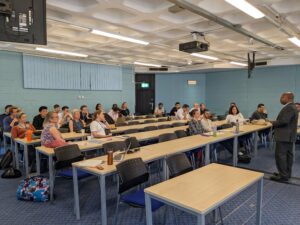
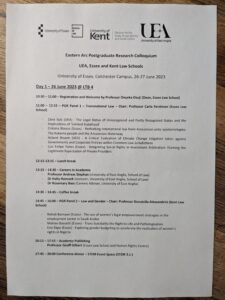
-
Details to be confirmed.
Our experiences of the world are always embodied. We cannot help but speak from bodies; our bodies speak to us, in ways we may not consciously understand; and they also often speak for us in uncontrollable ways. As we articulate our embodied experiences, we bump against the understandings, experiences, and articulations of other-bodied people. The entanglements of articulation, experience, and embodiment mark every attempt to understand ourselves and every interaction with others.
Articulation / Experience / Embodiment probes these entanglements at the heart of the critical medical humanities. Through workshops, provocations, and dialogue, the network examines crucial questions around the relationship between experience and representation; different forms, means and contexts of articulating knowledge and health and illness; and the methods for narrativizing embodied experience that open out techniques and spaces for empathy, healing and change.
The research network spans Eastern Arc (UEA, University of Essex, University of Kent). Our approach is interdisciplinary and cross-sectoral. Our starting points for these investigations are queer theory, disability studies, and phenomenology. We are committed to participatory methods that further social justice and pursue this aim through engagement with health organisations with lived experience at the heart of their mission.
-
5-9 June: University of Kent (online and in-person): Research funding for the arts and humanities
Run by Kent’s Division of Arts and Humanities, this blended programme of events will include:-
- Presentations from the AHRC and BA on applying for funding and looking forward to what’s on the horizon.
- Getting published, including two ‘meet the publisher’ sessions.
- A repeat of Phil Ward’s session on Getting Research Funded.
- Finding funding and an overview of the R&I policy landscape.
- Open research and developing your data plan.
- An ECR symposium.
- A CV workshop.
-
-
25 May (14:00-17:00), 21 June, (09:00-12:00), 20 July (09:00-12:00): University of Essex (in-person): Grant writing skills for early career researchers in social sciencesThere is a limited number of places available, so get in contact before 17 May to confirm your interest. Note that this is intended for postdoctoral ECRs.These three separate but complementary sessions will include an overview of the UK funding landscape (including Essex-specific advice) and general tips when looking for funding and writing grants. This will involve Gary Williams (Research Development Manager), Hannah Gibson (Senior Lecturer in Linguistics) and Phil Ward (speaking about key points from his forthcoming book, Getting Research Funded: Five Essential Rules for ECRs). There will also be an opportunity for peer skill-sharing, and looking at specific types of funding and ways to approaches them – such as exploring collaborative research opportunities.
-
 Eastern Arc hosted a session as part of the University of Kent’s Democratisation of Impact Conference.
Eastern Arc hosted a session as part of the University of Kent’s Democratisation of Impact Conference.Panel Discussion: The role of the UN SDGs as a framework for research
Since 2016 the 17 UN Sustainable Development Goals have been permeating research and institutional policies and practice across the world providing a measurable guide for key impacts. In this session, the panel will discuss perspectives on how SDGs have affected their respective areas of work and the benefits and challenges they represent. It will provide insight in how they have been addressed in different contexts.
The panel discussion was chaired by Phil Ward, Director of Eastern Arc. The discussants were:
Wendy McMahon is an Associate Professor in American Studies at the University of East Anglia. Her research interests centre around the literatures of the American hemisphere.Her work is often interdisciplinary, and she has collaborated on projects looking at community and cultural resilience in islands in the Caribbean facing environmental disasters.
Catherine Morris is Sustainability Manager at the University of Kent. She works to ensure that the University minimises its impact on the environment and that it embeds sustainability in everything it does. This includes embedding the SDGs in the work of the University, developing strategies to do so, and advising individuals and schools on working towards achieving them.
Gina Yannitell Reinhardt is a Professor in the Department of Government at the University of Essex. She studies how citizens and policy makers make decisions under uncertainty, and how those decisions affect economic, social, and political development and subsequent policy outcomes.
Zaki Wahhaj is a Professor of Economics at the University of Kent. His main fields of research are in economic development and applied theory. His current research deals, broadly, with the themes of social norms and household decision-making in developing countries.
A recording of the conference is available here.
-
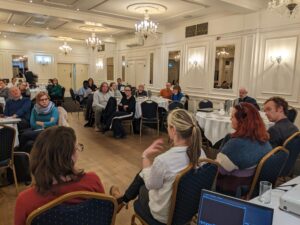 On 10 January Eastern Arc hosted a one day workshop for those working on practice as research. It was led by practitioners from the three EARC universities (UEA, Essex and Kent), and was a chance to explore the issues and opportunities facing those whose work involves a significant practice element.
On 10 January Eastern Arc hosted a one day workshop for those working on practice as research. It was led by practitioners from the three EARC universities (UEA, Essex and Kent), and was a chance to explore the issues and opportunities facing those whose work involves a significant practice element.Delegates learnt about how practice research was assessed in REF2021, how practitioners managed practice research, and how colleagues had applied for and got funding for their research.
Notes are now available from the day. To catch up with the discussion, go to our dedicated webpage here.
-
 ‘Articulation / Experience / Embodiment’ is a new research network that stretches across the Eastern Arc, and is part of our wider health and medical humanities collaboration.
‘Articulation / Experience / Embodiment’ is a new research network that stretches across the Eastern Arc, and is part of our wider health and medical humanities collaboration.The first network event will take place at the University of Essex on 9 November between 2-5pm. It will be a chance to play a part in scoping out the capacity across participating academic institutions; identify shared approaches, methods, and areas of interest; and locate cross-sector partners and participants for future workshops.
This is an in-person event, but we aim to make future events more accessible, and to run a supplementary online event if there is demand.
More details of the rationale behind the network are below. If you would like to attend this event or you are interested in participating in the network in future, please contact Tracey Loughran (t.loughran@essex.ac.uk).
We welcome researchers at all stages of their studies and careers, working both within and outside academia. We have a limited budget to support attendance, which will be allocated on a first-come, first-served basis, with prioritisation of PG students and those travelling from outside Essex.
Rationale
Our experiences of the world are always embodied. We cannot help but speak from bodies; our bodies speak to us, in ways we may not consciously understand; and they also often speak for us in uncontrollable ways. As we articulate our embodied experiences, we bump against the understandings, experiences, and articulations of other-bodied people. The entanglements of articulation, experience, and embodiment mark every attempt to understand ourselves and every interaction with others.
Articulation / Experience / Embodiment probes these entanglements at the heart of the critical medical humanities. Through workshops, provocations, and dialogue, the network will examine crucial questions around the relationship between experience and representation; different forms, means and contexts of articulating knowledge and health and illness; and the methods for narrativizing embodied experience that open out techniques and spaces for empathy, healing and change.
-
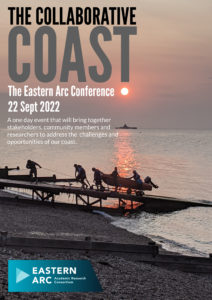 This year our conference will focus on our ‘Collaborative Coast’. It takes place on 22 September 2022 at Wivenhoe House at the University of Essex.
This year our conference will focus on our ‘Collaborative Coast’. It takes place on 22 September 2022 at Wivenhoe House at the University of Essex.It will be a chance for academics and regional stakeholders to come together to discuss key questions facing the coast, from addressing health inequalities to preparing for climate change, from harnessing renewable energy to supporting our creative community.
We are now inviting applications (using this form) from both stakeholders and academics to lead one of the conference’s eight parallel workshops.
You can suggest questions that need to be answered or problems that need to be solved. You can offer case studies of projects that have worked – or, indeed, projects that haven’t worked – and what we can learn from them. They can be talks, panel sessions, interactive workshops or discussion groups: the choice is yours.
The deadline for submissions is 30 June 2022. We’ll let you know whether your idea has been chosen shortly after. We’ll then open up the conference for registration in August with details of the full programme.
For more information, or if you have any questions, contact us via this email.
-
 In 2021 the Chief Medical Officer looked at health in coastal communities, and suggested that the available data on health and wellbeing were poor. He recommended that this should be addressed.
In 2021 the Chief Medical Officer looked at health in coastal communities, and suggested that the available data on health and wellbeing were poor. He recommended that this should be addressed.Eastern Arc is taking the first steps towards doing this.
On 19 July and 21 July it will host two workshops at which stakeholders in NHS trusts, local authorities, charities and third sector organisations will be invited to discuss and identify the common and specific issues they face around data.
The workshops will take the format of ‘open space’ sandpits, as have been used recently by UEA (in consulting on its civic mission) and Essex (in identifying interdisciplinary projects).
The events will be followed up by a survey over the summer. Evidence from these three initiatives will be collated and used as a basis for designing interventions in the autumn and winter.
The workshops are free and open to anyone with an interest in or responsibility for collecting, collating and using health data. Both events are the same; you can choose which of the two you want to attend.
If you would like to take part, click on the links below. Spaces are strictly limited, and will be available on a first come, first served basis. The events are being held at the University of Essex, as the geographically central university of the Eastern Arc region.
-
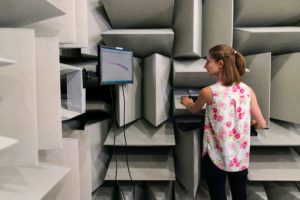 UKRI published its five year strategy in March, and each of the research councils are currently working on their delivery plans to support this strategy. Their budget allocation has just been announced, and now is a good time to take stock and look forward to what is in store for the councils.
UKRI published its five year strategy in March, and each of the research councils are currently working on their delivery plans to support this strategy. Their budget allocation has just been announced, and now is a good time to take stock and look forward to what is in store for the councils.The largest of the councils is the Engineering and Physical Sciences Council (EPSRC). The University of Kent has invited EPSRC’s Head of International Development, Ellie Gilvin, to talk about its plans and what is on the horizon for the council. Her role will enable her to talk about EPSRC’s plans for international collaboration, but she will also be able to discuss the council’s intentions more broadly.
Kent has kindly opened up the event to members of the Eastern Arc: UEA, Essex and Kent. It is free and open to all, but you must register to take part. To do so, click on the link here.
-
 Eastern Arc will be hosting a research funding webinar with the Wellcome Trust on 27 June at 12noon. It will look at the opportunities for those working in the humanities and social sciences.
Eastern Arc will be hosting a research funding webinar with the Wellcome Trust on 27 June at 12noon. It will look at the opportunities for those working in the humanities and social sciences.It is online, free and open to all. To register click here.
Wellcome is a charitable foundation focused on funding and supporting health-related research. This includes research in the humanities and social sciences, and this event is a chance to hear about the opportunities in this area following Wellcome’s announcement of its new strategy.
The session will be led by Dr Thomas Bray. Dr Bray is a Senior Research Manager in the Discovery Research team at Wellcome, with a focus on supporting research on health and wellbeing in the arts, humanities, and social sciences.
Wellcome’s Discovery Research strategy seeks to support bold, creative, and high-quality research from a broad range of disciplines; you can find more details here. This will be through both directed activities and open-mode funding; you can read more about the three Discovery Research schemes here.
This workshop will focus on the Discovery Research strategy and its role within Wellcome’s wider mission to support research which can solve the urgent health challenges facing everyone.
To register click here.
-
 Eastern Arc will be hosting a workshop on 13-14 June at the University of Essex to explore issues around cognitive and bodily aspects of the self, and to develop new directions in research.
Eastern Arc will be hosting a workshop on 13-14 June at the University of Essex to explore issues around cognitive and bodily aspects of the self, and to develop new directions in research.This builds on a successful event held before the pandemic, which showcased multi-disciplinary research undertaken at UEA, Essex and Kent. It was an opportunity for researchers from these departments to interact, share ideas, and link previously dissociated research areas into new models and theories.
We welcome postgraduate students, postdoctoral researchers, and academics working in this area to join us and share their own work.There is some funding available to help postgraduate student attendees with the costs of travel/accommodation for this workshop. Please e-mail alex.sel@essex.ac.uk for further information about how to apply.
To take part, go to the dedicated Eventbrite page. Registration will close on Tuesday 7 June.
-
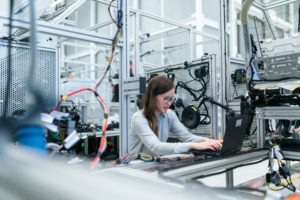 As part of its programme of funder webinars, Eastern Arc will be hosting the Defence and Security Accelerator (DASA) at 2pm on 15 June. It’s free and open to all. To register, click here.
As part of its programme of funder webinars, Eastern Arc will be hosting the Defence and Security Accelerator (DASA) at 2pm on 15 June. It’s free and open to all. To register, click here.Established in 2016, DASA works across government to find and fund exploitable innovation to support the UK’s defence and security. This has been given additional priority and focus following the Integrated Review, published in March last year.
DASA’s aims are:
-
- To develop an innovation network across academia, government and the private sector
- To understand the requirements of defence and security stakeholders
- To provide funding to develop ideas, products and services
- To inform decision-making
Current calls include funding for the following:
To find out about the DASA, its background and current calls, come along to the webinar. To register, click here.
Photo by ThisisEngineering RAEng on Unsplash
-
-
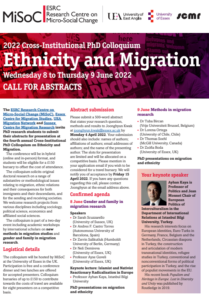 The Eastern Arc universities have a strong research interest in migration and broader areas of race, ethnicity and decolonisation. UEA has a strong Migration Research Network; Essex a thriving Centre for Migration Studies; and Kent has just established a signature research theme in Movement and Migration.
The Eastern Arc universities have a strong research interest in migration and broader areas of race, ethnicity and decolonisation. UEA has a strong Migration Research Network; Essex a thriving Centre for Migration Studies; and Kent has just established a signature research theme in Movement and Migration.We are working to build on these strengths and develop further links between these centres. Some collaborations already exist, such as the annual PhD Colloquium on Ethnicity and Migration. This was disrupted during the pandemic, but we are delighted to announce the fourth annual event.
The colloquium will take place in June, and the organisers (The ESRC Research Centre on Micro-Social Change (MiSoC), Essex Centre for Migration Studies, UEA Migration Network and Sussex Centre for Migration Research) are now inviting PhD research students to submit their abstracts for presentation.
Further details are available in this flier (pdf). To be considered, please submit a 500-word abstractthat states your research question, methods and results to Joonghyun Kwak at joonghyun.kwak@essex.ac.uk by Monday 4 April 2022.
-
 The UEA Faculty of Arts and Humanities is running a new research series, Back to the Future: Arts in a Digital Age between 10 May – 7 June 2022. All events are free, open to all, and will take place at Norwich Castle. More information on the series and registration page is available here.The events seek to examine the impact of the digital age on key aspects of the arts in the past, present, and future. Through four fascinating events, the effects on museum and gallery curatorial practice, archives, the wider heritage industry, and the study of history, will be explored.Contributors include the Digital Director of The National Archives at Kew; the Head of Library Collections at the Society of Antiquaries of London; the Professor of Palaeography at Cambridge; the Head of Collections Care at the Tate; a museums specialist from Glasgow University; the Director of the Sainsbury Centre, and specialists from the Castle Museum and UEA.
The UEA Faculty of Arts and Humanities is running a new research series, Back to the Future: Arts in a Digital Age between 10 May – 7 June 2022. All events are free, open to all, and will take place at Norwich Castle. More information on the series and registration page is available here.The events seek to examine the impact of the digital age on key aspects of the arts in the past, present, and future. Through four fascinating events, the effects on museum and gallery curatorial practice, archives, the wider heritage industry, and the study of history, will be explored.Contributors include the Digital Director of The National Archives at Kew; the Head of Library Collections at the Society of Antiquaries of London; the Professor of Palaeography at Cambridge; the Head of Collections Care at the Tate; a museums specialist from Glasgow University; the Director of the Sainsbury Centre, and specialists from the Castle Museum and UEA.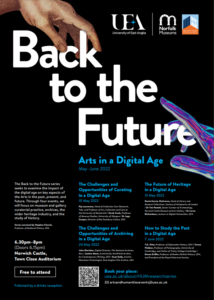 Travel bursaries
Travel bursariesGiven the focus of this series and the fit with the Eastern Arc thematic priority of Culture, Connection and Creativity, we are supporting it by making a small number of travel bursaries available for colleagues from Essex and Kent wishing to attend the event.
If you would like to apply for one of these, contact us with your details.
Image: note thanun on Unsplash
-
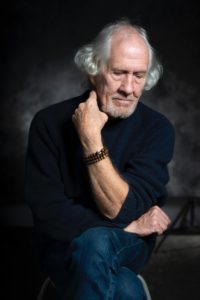 Registration for our fifth seminar on mental health and the life course is now open. It is free and open to all, and will take place at 12noon on 8 March 2022. Click here to sign up.
Registration for our fifth seminar on mental health and the life course is now open. It is free and open to all, and will take place at 12noon on 8 March 2022. Click here to sign up. It is well known that the population, both nationally and globally, is ageing. The WHO has stated that, between 2015 and 2050, the proportion of the world’s population over 60 years will nearly double, from 12% to 22%. It goes on to suggest that 20% of over 60s have a mental disorder, predominantly dementia and depression. In addition, older people are at risk of elder abuse, which can exacerbate mental health issues.
These issues aren’t separate from the lifecourse, but a result of it. This seminar will look at the risk factors in earlier life that lead to physical and mental health issues, and will consider how these problems are currently being addressed and mitigated. To do so, we have invited a range of colleagues across the three Eastern Arc universities (UEA, Essex and Kent) to discuss the issues further, based on the findings of their research.
Speakers
- Prof Emily Grundy (Institute for Social and Economic Research, Essex): Emily is Professor of Population Science and was the Director of ISER until 2020. Her main research interests are families, households and kin and social networks in later life, especially in relationship to health, associations between family life courses and health and well-being at older ages, and trends and differentials in later life health, disability and mortality.
- Prof Alisoun Milne (Social Policy, Sociology and Social Research, Kent): Alisoun is Emeritus Professor in Social Gerontology and Social Work. Before becoming an academic, Alisoun worked as a social worker and team manager in two local authorities in London for seven years. Her research interests are in four intersecting areas: social work with older people and their families; mental health in later life; family caring; and long term care.
Respondent
- Prof Michael Hornberger (Norwich Medical School, UEA). Michael is Professor of Applied Dementia Research. His research focuses on improving diagnosis, disease progression tracking and symptom management in dementia. His current research is particularly focused on spatial orientation and navigation deficits in dementia and how this has an impact on people’s outdoor activities such as driving and walking safely.
Chair
- Prof Kevin Daniels (UEA). Kevin is Professor of Organisational Behaviour and led the Work, Learning and Wellbeing evidence programme for the ESRC. He is currently leading another ESRC-funded project on workplace wellbeing practices and productivity, as part of a wider programme of projects concerned with management practices, employee engagement and productivity.
Photo by Jonathan Cosens Photography on Unsplash
-
We are delighted to announce the first in a series of Eastern Arc funder webinars. To register to take part, click here.
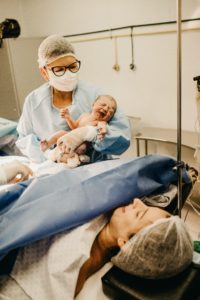 The National Institute for Health Research was established in 2006 and has an annual budget of more than £1bn. It funds health and social care, and has been seen as the ‘research arm of the NHS’.
The National Institute for Health Research was established in 2006 and has an annual budget of more than £1bn. It funds health and social care, and has been seen as the ‘research arm of the NHS’.However, many who do research that is relevant to the funder are detered from applying because its structure can seem confusing, its priorities obscure, and its processes unclear.
This webinar is intended to help with this. It will be a clear, straightforward overview of how the funder is structured, its 10 basic schemes, and how applications are assessed, together with insights into how you can frame your application for the best chance of success, and where you can find out more. We will leave plenty of time for questions, clarifications and discussion following the presentations.
Leading the webinar will be colleagues from across Eastern Arc.
- Prof Andrew Bateman is based at Essex and is Director of the NIHR Research Design Service for the East of England as well as Head of Division of Interdisciplinary Research and Practice in the School of Health and Social Care.
- Prof Garry Barton is a Professor of Health Economics at UEA, as well as Deputy Director and site lead for the NIHR RDS EoE. He is a panel member for NIHR Advanced Fellowships (PDF) and Programme Grant for Applied Research (PGfAR) applications.
- Dr Ferhana Hashem is a Reader in Health Services Research in the Centre for Health Services Studies at the University of Kent. She is Kent site lead for the RDS South East of England. She has written for Research Professional explaining the focus and structure of NIHR for those unfamiliar with it.
- Prof Tracey Sach is also a Professor of Health Economics at UEA. She is currently Chair of the NIHR Research for Patient Benefit East of Engliand Research Advisory Committee.
The event is free and open to all. To take part register here.
-
 Registration for our fourth seminar on mental health and the life course is now open. It is free and open to all, and will take place at 1pm on 2 February 2022. Click here to sign up. The idea of ‘safeguarding’ is a relatively new term, brought into law through the Care Act of 2014. However, the need for such protection is long-standing, and historic cases of abuse of children and vulnerable adults are continuing to come to light. In this, the third of our seminars on mental health and the life course, we will look at the issues facing vulnerable adults, particularly those with mental health issues, and what is being done to support and safeguard those who are affected.To discuss these issues we have brought together three colleagues from across Eastern Arc with a range of research and lived experience.
Registration for our fourth seminar on mental health and the life course is now open. It is free and open to all, and will take place at 1pm on 2 February 2022. Click here to sign up. The idea of ‘safeguarding’ is a relatively new term, brought into law through the Care Act of 2014. However, the need for such protection is long-standing, and historic cases of abuse of children and vulnerable adults are continuing to come to light. In this, the third of our seminars on mental health and the life course, we will look at the issues facing vulnerable adults, particularly those with mental health issues, and what is being done to support and safeguard those who are affected.To discuss these issues we have brought together three colleagues from across Eastern Arc with a range of research and lived experience.- Dr Joanne Hodgekins (Psychology, UEA) is a Clinical Psychologist and Clinical Senior Lecturer at Norwich Medical School. For the past 15 years, Jo has been involved in research with people with psychosis and young people who may be at risk of developing psychosis. Jo has a particular interest in using psychological interventions to improve social and functional outcomes for people with psychosis and those who may be at risk of long-term social disability following mental health difficulties. She is also interested in the way in which such outcomes may be measured and developed an adapted version of the UK Time Use Survey for this purpose.
- Leanne Taylor (Law, Kent) is a qualified social worker and worked for Kent County Council as a mental health social worker and an approved social worker until the late 2000s. She leads social work modules in areas relating to the law and child protection, mental capacity, mental health and adult social care. She also gives workshops on matters relating to social work practice in mental health services, and is a panel member on the First Tier Tribunal (Mental Health) for HM Courts and Tribunals Service. Leanne was part of the University of Kent’s Trans Awareness in Social Work project and provides workshops on social work with transgender and non binary people.
- Dr Danny Taggart (Health and Social Care, Essex) has a longstanding experience in the area of public participation in health and social care services and is Lead for Service User and Carer Engagement at the University. This work has become focused on the ways that trauma survivors can engage safely with public bodies and he is currently working with a number of survivor groups around trauma informed models of engagement. He has just returned from two years working at the Independent Inquiry into Child Sexual Abuse where he was the Clinical Lead and Principal Psychologist for the Truth Project, which heard from over 5,000 survivors of child sexual abuse.
-
 Our third seminar in the ‘Mental Health and the Life Course’ took place on 25 Jan 2022.Pearson et al (2018) made clear that, although parenthood represents a major biological, social and environmental life change, the relationship between parenthood and common mental health issues is poorly understood. In this, the third in our short series of seminars exploring mental health and the life course, we will examine the relationship between mental health and parenting, the causes and the impact on both children and others around the parents.To discuss the issues we have invited three colleagues from across the EARC universities of UEA, Essex and Kent with a very wide – and very different – disciplinary perspectives.
Our third seminar in the ‘Mental Health and the Life Course’ took place on 25 Jan 2022.Pearson et al (2018) made clear that, although parenthood represents a major biological, social and environmental life change, the relationship between parenthood and common mental health issues is poorly understood. In this, the third in our short series of seminars exploring mental health and the life course, we will examine the relationship between mental health and parenting, the causes and the impact on both children and others around the parents.To discuss the issues we have invited three colleagues from across the EARC universities of UEA, Essex and Kent with a very wide – and very different – disciplinary perspectives.- Dr Sarah Johns is a Reader in Evolutionary Anthropology at Kent. She is a broadly trained anthropologist with research experience in palaeoarchaeology, human reproductive behaviour and the evolutionary anthropology of human reproductive decision-making. Her primary research interest is in the variation of the age at first birth in humans, specifically focusing on teenage mothers, and how public health policy and evolutionary theory can be integrated.
- Dr Katie Daughters is a Lecturer in Psychology at Essex. Her research seeks to answer questions about the biological underpinnings of social behaviour. She takes an interdisciplinary approach and uses a range of methodologies to address related research questions. Her research incorporates topics such as emotion, social cognition, neuroscience and well-being.
The seminar will be chaired by Dr David Watson, Lecturer in Organisational Behaviour, Norwich Business School. David is an Eastern Arc Champion for Health, Social Care and Wellbeing at UEA. He has a particular interest in issues of wellbeing, particularly in relation to the development of organisational policy.
-
 This was the fourth and final transdisciplinary workshop hosted by Kent and was open to members of Eastern Arc.
This was the fourth and final transdisciplinary workshop hosted by Kent and was open to members of Eastern Arc.Recently, funding bodies have published reports and outlined policies on diversity and inclusion for research grants, such as UKRI and Wellcome. This workshop explores diversity and inclusion in transdisciplinary research. Raising awareness of issues is important as a first step, but how can good intentions be translated into good practice and effective outcomes? How do we structure and address diversity and inclusion in our research? What techniques can be developed? What are the barriers and how can we address and overcome them? Do we need to challenge broad categorisations (gender, race, disability) and include social phenomena and social relations, thereby shifting the discourse to focus on intersectionality?
Workshop 4: Wed, 8th Dec 2021, 1-2pm GMT -
 This was the third of four transdisciplinary workshops hosted by Kent and was open to members of Eastern Arc.
This was the third of four transdisciplinary workshops hosted by Kent and was open to members of Eastern Arc.One of the key questions in interdisciplinary funding interviews is ‘what happens if an element of research goes wrong?’ This is rarely foremost in the minds of researchers intent on pursuing innovative collaborative research. This workshop will explore managing expectations in a broad collaborative research group, rates of progress and accepting asymmetry. For instance, in a broad collaborative research group, is it expected that each unit/discipline will ‘progress’ at the same rate, mapping out both joint and individual (disciplinary) achievements? How do you manage the expectations of stakeholders? How does a risk management strategy support research collaboration in order to manage expectations?
Workshop 3: Wed, 24th Nov 2021, 1-2pm GMT -
 This was the second in our six part seminar series.Mental health in children and young people often goes unrecognised and untreated. According to the Mental Health Foundation, mental health issues affect 1 in 6 children, and yet 75% of those aren’t getting the support they need. However, children’s emotional wellbeing is just as important as their physical health. Good mental health helps them develop the resilience to cope with whatever life throws at them and grow into well-rounded, healthy adults.In this, the second of our seminars on mental health and the life course, we look at issues affecting young people. To help us explore these, we have brought together three experts from across the Eastern Arc who will provide insights from a range of perspectives.
This was the second in our six part seminar series.Mental health in children and young people often goes unrecognised and untreated. According to the Mental Health Foundation, mental health issues affect 1 in 6 children, and yet 75% of those aren’t getting the support they need. However, children’s emotional wellbeing is just as important as their physical health. Good mental health helps them develop the resilience to cope with whatever life throws at them and grow into well-rounded, healthy adults.In this, the second of our seminars on mental health and the life course, we look at issues affecting young people. To help us explore these, we have brought together three experts from across the Eastern Arc who will provide insights from a range of perspectives.- Dr Steve Taylor: Steve is a historian of medicine, disability and childhood. He is interested in ideas and constructions of mental difference; the historical process of diagnosis; ability and disability considered through a lens of perfection/imperfection; institutional care across the nineteenth and twentieth centuries; and the psychological impact of forced migration on children. Steve has published widely in these areas, including Child Insanity in England, 1845-1907 (2017). He is currently writing his second book that examines experiences of mental deficiency, childhood, and education in a special school at the beginning of the twentieth century.
- Dr Kate Mahoney: Kate is a Post-Doctoral Research Assistant in the Department of History at the University of Essex. Her research focuses on the intersection of radical politics, community-based organisations, women’s health and mental health provision, and psychological and psychotherapeutic discourses in England from the late 1960s onwards. She is currently working on the Wellcome Trust-funded project Body, Self and Family: Womens Psychological, Emotional and Bodily Health in Britain, c.1960-1990, which explores how social changes in postwar Britain influenced women’s understandings of their bodily and emotional wellbeing.
Dr Nick Walsh: Nick is Lecturer in Developmental Psychology at UEA. His research interests are in the developmental aetiology, maintenance, and consequences of stress-related states and traits. His current interests examine how engineering and systems approaches can be used to conceptualise mental health and wellbeing phenomena.
Photo by Bess Hamiti from Pexels
-
 The Eastern Arc Health Systems, Social Care and Wellbeing theme hosted a monthly seminar series throughout the autumn and spring terms 2021/22.
The Eastern Arc Health Systems, Social Care and Wellbeing theme hosted a monthly seminar series throughout the autumn and spring terms 2021/22.The series focused on ‘Mental Health and the Life Course,’ exploring this wide-ranging topics from different disciplinary perspectives. Each event consisted of two brief papers, followed by comments from a designated respondent, and by audience discussion.
The series aimed for a conversational feel, focused on exploring the distinctive contributions of different disciplines to specific issues, and on searching for points of convergence and divergence between these perspectives.
Each session featured contributions from each EARC institution, and the overall aim of the series was to build a community of like-minded scholars who may wish to collaborate on research, teaching, or public engagement projects – or just to learn from each other.
- 26 October, 12noon: Mental Health and the Life Course
- 19 November, 2pm: Young People
- 25 January, 12noon: Parenthood
- 2 February, 1pm: Vulnerable Adults
- 14 February, 12noon: Midlife
- 8 March, 12noon: Ageing
Photo by Elina Krima from Pexels
-
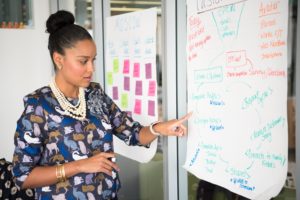 This was the second of four transdisciplinary workshops hosted by Kent and open to members of Eastern Arc.
This was the second of four transdisciplinary workshops hosted by Kent and open to members of Eastern Arc.We all exist in individual and collective cultural and embodied research environments. What techniques can we develop to share our epistemological spaces to facilitate stronger collaboration? The session will explore some themes: how do individuals navigate unfamiliar spaces? What are the emotional dynamics of collaboration within different spaces? Can collaborative spaces enable disciplinary boundaries to blur? How can we demystify academic working spaces and intellectual frameworks to include those unfamiliar with to fully engage with the research agenda? In this session we hope to explore how spaces of collaboration shape the identity of researchers; how different venues enrich and enhance transdisciplinary work, and how research practices and intellectual and disciplinary spaces might be transformed through collaboration.
Workshop 2: Wed, 20th Oct 2021, 1-2pm GMT+1Photo by Christina Morillo from Pexels -
 This was the first of four transdisciplinary workshops hosted by Kent and open to members of Eastern Arc.
This was the first of four transdisciplinary workshops hosted by Kent and open to members of Eastern Arc.By its very nature, transdisciplinary research brings structures of power into sharp focus. This workshop explores power dynamics in knowledge production. Collaborative research can expose the tensions inherent in systemic institutional inequality. Furthermore, it can be dominated by a disciplinary research agenda, where one discipline feels side-lined. This differentiation can be stark for collaborations with stakeholders. How can we create awareness around unequal power relationships? What are the specific issues? What steps can be taken to address these issues? What is the value of equality in knowledge production? Are there structural changes that can be made to facilitate equality? How do we address structural issues, and at what level do they need to be tackled?
Workshop 1: Wed, 6th Oct 2021, 1-2pm GMT+1 -
 The University of Kent hosted a lecture series exploring transdisciplinary research. The series was sponsored by the Wellcome Trust and was open to colleagues across Eastern Arc and beyond.
The University of Kent hosted a lecture series exploring transdisciplinary research. The series was sponsored by the Wellcome Trust and was open to colleagues across Eastern Arc and beyond.Transdisciplinarity ‘involves intense interaction between academics and practitioners in order to promote a mutual learning process between them.’ (Steiner and Posch, 2006, 4). This lecture series will promote discussion in transdisciplinary collaboration in the Humanities, Sciences and Social Sciences. Experts in collaborative research will explore the creation of networks and relationships, modes of analysis and investigation, knowledge production, and offer their own insight into transdisciplinary research.
The series took place between 29 Sept to 1 Dec. Full details are available here (pdf).
The lecture series was followed by workshops to understand wider issues of inclusivity, environment, and expectations around transdisciplinarity. These were open to colleagues at the University of Kent, East Anglia and Essex. More details to follow shortly.
-
 An EARC-funded hybrid workshop was held at the University of Kent on 9-10 September 2021.
An EARC-funded hybrid workshop was held at the University of Kent on 9-10 September 2021.The workshop aimed to showcase and discuss recent advances made by the three Eastern Arc universities (Kent, UEA and Essex) in the use of experimental and quasi-experimental methods. The workshop targetsed economists, psychologists, political scientists, anthropologists, and conservation scientists.
Prof Imran Rasul (UCL) was welcomed as the keynote speaker.
Photo by Rob Curran on Unsplash
-
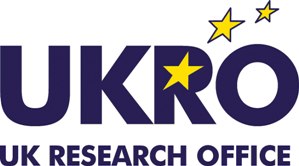
In June and July 2021 we jointly hosted six sessions on European funding delivered by both the UK Research Office (UKRO) in Brussels and the UK’s National Contact Points (NCPs) for the EU’s new R&I funding programme, Horizon Europe.
They were an invaluable opportunity to get an overview of the whole programme, as well as specific insights into different parts of it, such as the European Research Council, specific challenges or ‘clusters’, and the COST actions.
Slides and recordings from the events are available via our dedicated page.
We have also prepared a simple introduction to Horizon Europe, The guide is available here.
-

On 28 and 29 June we hosted two workshops with the Department for Work and Pensions (DWP) as it developed its new Areas of Research Interest (ARIs). It was a great opportunity to hear from DWP and discuss their plans with them, but also to hear about the research going on in the area across Eastern Arc.
Recordings of the DWP-led sessions are available below:
- Overview from the DWP Central Analysis and Science Strategy Unit (Dr Tim Willis, Principal Research Officer, DWP Central Analysis and Science Directorate)
- The development of the DWP working-age modelling and forecasting approach through the Covid period (Dr Dave Pankhurst, Working Age Model Development Lead, DWP Working Age Modelling & Forecasting Division). Slides are available here (ppt)
Recordings of the Eastern Arc academics’ presentations are below:
- Developing a tool to guide cost-evaluation and implementation of workplace health and wellbeing practices
- Prof Kevin Daniels, UEA
- Slides are available here (ppt)
- Falling behind? Eligibility for parental leave in the UK and EU27
- Dr Matthew Aldrich, UEA
- Slides are available here (ppt)
- Hours and pay uncertainty in the UK
- Dr Silvia Avram, University of Essex
- Slides are available here (pdf)
- Intrahousehold inequality and gender impacts of taxes and benefits: UK vs other European countries
- Dr Daria Popova, University of Essex
- Slides are available here (pdf)
- Investigating the role of debt advice on borrowers’ wellbeing: an encouragement study on a new sample of over-indebted people in Britain
- Dr Laura Fumagalli, University of Essex
- Slides are available here (pdf)
- New maps of economic insecurity
- Prof Matteo Richiardi, University of Essex
- Slides are available here (pdf)
- The added worker effect as a coping strategy for everyone? Transitions to activity of inactive ethnic minority women in the UK
- Katrin Gasior, University of Essex
- Slides are available here (pdf)
Programme
The original programme is available here (pdf).
-
 EIRA, the Research England-funded programme for supporting knowledge exchange across Eastern Arc and beyond, hosted a month-long series of virtual events and activities for ‘Innovation Month’ in June 2021. Spread across its three core themes, it hosted Digital Creative Week from the 7th – 11th June, Biotechnology Week from 14th – 18th June and a joint AI and student-focused week from 21st – 25th June.
EIRA, the Research England-funded programme for supporting knowledge exchange across Eastern Arc and beyond, hosted a month-long series of virtual events and activities for ‘Innovation Month’ in June 2021. Spread across its three core themes, it hosted Digital Creative Week from the 7th – 11th June, Biotechnology Week from 14th – 18th June and a joint AI and student-focused week from 21st – 25th June.Innovation Month culminated in the final EIRA Showcase on Thursday 24th June. This event was an opportunity for businesses, academics, student / graduate interns, knowledge exchange professionals and senior management to come together and find out more about the rich and diverse projects supported by EIRA, and what other support was available for business.
Recordings from each of the sessions are now available here. For an overview of the programme and further details, click here.
Date Event 8 June Digital Creative: Beyond Reality: Testing New Dimensions 9 June Digital Creative: Twitter Conversation – Lessons for the Libraries and Archives Sector 10 June Digital Creative: Twitter Conversation – Improving mental health and wellbeing through Digital Creative innovations 15 June Biotechnology: ‘Doing more with less’ webinar 16 June Biotechnology: ‘The role of the Knowledge Exchange Manager in successful Biotech collaborations’ with Praxis Auril 22 June AI & Student: Student Knowledge Exchange and Innovation 23 June AI & Student: Artificial Intelligence: First steps to productivity 24 June 24 – EIRA Showcase -
 As part of the EARC Culture, Connection and Creativity theme, the Kent Embodied Research Collective (KERC) hosted a virtual “speed dating” event between 16:00-18:00 on 27 May to bring colleagues together to explore the potential for embodied practices and research methods. Embodied research takes many forms across the disciplines, and cross-disciplinary dialogue can lead to exciting and valuable new collaborations, which KERC and the Eastern ARC aim to foster.At the event, participants had a chance to talk individually in breakout rooms. Each conversation, which lasted no more than five minutes, was an opportunity to exchange details of interests and project plans, and all participants were able to meet all others in the rotation. Following the event, mutual ‘likes’ were collated by the host and participants were contacted with their potential matches.For more information, contact Dr Freya Vass (University of Kent).Photo by jurien huggins on Unsplash
As part of the EARC Culture, Connection and Creativity theme, the Kent Embodied Research Collective (KERC) hosted a virtual “speed dating” event between 16:00-18:00 on 27 May to bring colleagues together to explore the potential for embodied practices and research methods. Embodied research takes many forms across the disciplines, and cross-disciplinary dialogue can lead to exciting and valuable new collaborations, which KERC and the Eastern ARC aim to foster.At the event, participants had a chance to talk individually in breakout rooms. Each conversation, which lasted no more than five minutes, was an opportunity to exchange details of interests and project plans, and all participants were able to meet all others in the rotation. Following the event, mutual ‘likes’ were collated by the host and participants were contacted with their potential matches.For more information, contact Dr Freya Vass (University of Kent).Photo by jurien huggins on Unsplash -
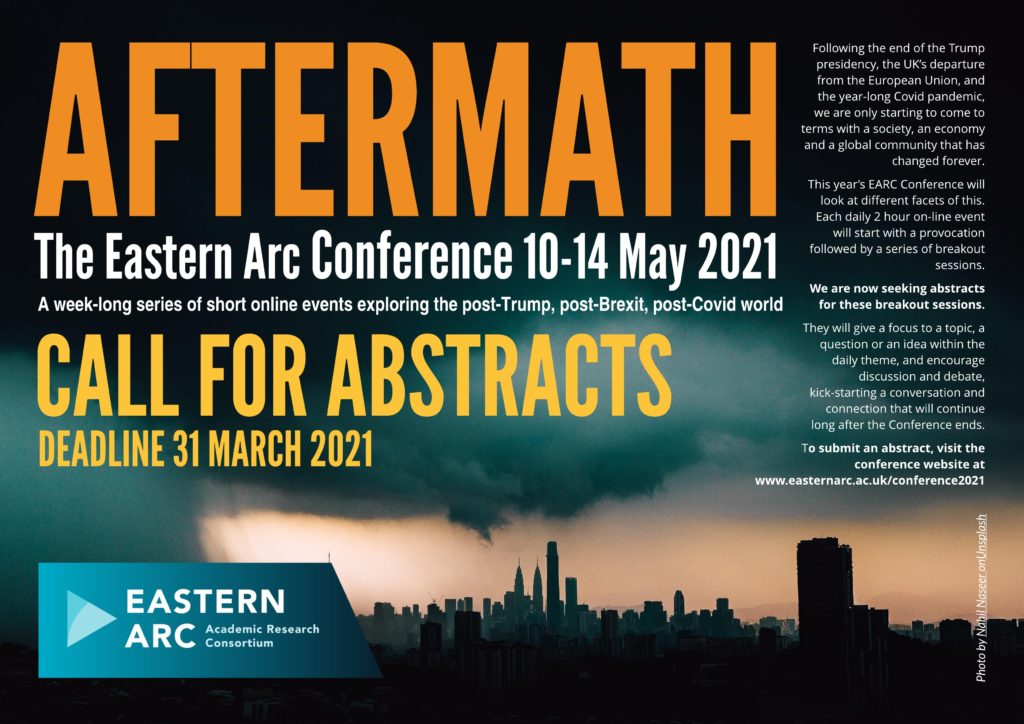 A week-long series of short online events exploring the post-Trump, post-Brexit, post-Covid world
A week-long series of short online events exploring the post-Trump, post-Brexit, post-Covid worldFollowing the end of the Trump presidency, the UK’s departure from the European Union, and the year-long Covid pandemic, we are only starting to come to terms with a society, an economy and a global community that has changed forever.
This year’s EARC Conference looked at different facets of this. Taking the form of a week-long series of 2 hour on-line sessions, delegates will hear from a range of speakers and provocateurs, triggering discussion and debate.
A summary of the conference is available here, and original details are available here.
-
The push to decolonise the curriculum has been gathering momentum for a decade, but has been given increased urgency in the last year with the rise of the Black Lives Matter movement and a wider awareness of ingrained and embedded inequalities, particularly within institutions.
But how does this work in practice? What can be done, and how difficult will it be to reset long-held Euro-centric assumptions?
This event was an opportunity to discuss these issues. To do so, our Director Phil Ward was joined by six colleagues from across the Eastern Arc universities: three members of staff and three students.
Together they have advocated for change within their institutions, and have worked to address entrenched notions of privilege and identity.
They discussed the barriers they have faced, the successes they have achieved, and the challenges (and opportunities) that lie ahead. A recording of the discussion is available here.
Speakers
The speakers are:
- Barbara Adewumi (Kent): Barbara joined Kent in 2017 as a Sociology lecturer. She currently works as a Postdoctoral Research Associate in Student Success to develop and conduct research on BME academic progression, engagement and belonging to help close the white-BME awarding gap. She leads the Diversity Mark Project at Kent. She is joined by the Diversity Mark intern for the project, Patrice Mighton.
- Hannah Gibson (Essex): Hannah is a Senior Lecturer in Linguistics at Essex who works primarily on African languages. She has an interest in language and identity, as well as the relationship between linguistics and social justice. With her is Samira Diebire who worked with fellow students at Essex to organise a webinar series looking at specific issues of decolonising the curriculum, but also in how the university is governed.
- Claire Hynes (UEA): Claire is a Lecturer in Literature and Creative Writing at UEA. Her fiction and non-fiction writing explores black British identities, and she has previously worked as a news editor for The Voice newspaper, a writer for national newspapers and a BBC television producer. She is currently leading and implementing on decolonising the curriculum within her School, including the creation of a BIPOC student ambassador scheme. Aimee Ibarra Hempel is one of the ambassadors on the scheme.
-
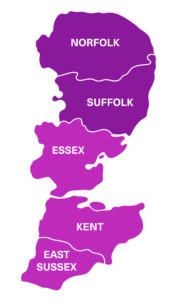 Eastern Arc is committed to supporting businesses and the wider economy within our region, encouraging engagement with our universities, and facilitating the exchange of knowledge between our researchers and stakeholders in the region.
Eastern Arc is committed to supporting businesses and the wider economy within our region, encouraging engagement with our universities, and facilitating the exchange of knowledge between our researchers and stakeholders in the region. On 2 March Innovate UK East of England KTN hosted an event that enabled small innovative businesses – or those who have an ambition to start one – to find out how Innovate UK, the Eastern Arc universities and other partners can support them in developing their ground-breaking ideas and accelerating their journey to market. The day included a session from EIRA, our Research England-funded programme for developing links between our universities and regional businesses.
On 2 March Innovate UK East of England KTN hosted an event that enabled small innovative businesses – or those who have an ambition to start one – to find out how Innovate UK, the Eastern Arc universities and other partners can support them in developing their ground-breaking ideas and accelerating their journey to market. The day included a session from EIRA, our Research England-funded programme for developing links between our universities and regional businesses.Recordings from the event are now available here.
-

On 23 February we hosted colleagues from the Ministry of Justice to talk about its areas of research interest (ARIs).
Background
ARIs were developed in response to Professor Sir Paul Nurse’s review of research councils in 2014.
They are a way for government departments to set out the strategic research questions to which they need answers in the short to medium term.
In the past, departments either assumed that it was obvious what questions they were wrestling with or were worried that by setting out what they didn’t know then people would know they didn’t know it.
For the MOJ, the ARIs set out its evidence needs over the next 3 to 5 years, aligned with the department’s strategic objectives for the system. It will use these as a basis to engage with academics and research organisations from across the justice research landscape and the disciplinary spectrum.
Recording and slides
The recording and slides from the webinar are here:
Speakers
The speakers were:
- Sarah Pike is a social researcher working in the Evidence and Partnerships Hub in MoJ. Her role is to help facilitate connections with the academic and external community through the ARI document. She has worked within a range of government social researcher roles, including at HMI Probation, HMPPS and the Home Office.
- Dr Ben Hepworth is a mathematician working in the same Hub. Ben leads on fostering collaborations with researchers to facilitate the exchange of evidence and expertise, previously working in a similar role in DWP. Prior to this he completed his PhD and taught at the University of Leeds.
- Professor Andromachi Tseloni is Professor of Quantitative Criminology at Nottingham Trent University. She is the Academic Lead for the Data First Programme within the Hub. She has expertise in victimisation theory, applied social statistics and econometrics. Her work revolves around five broad themes: criminal victimisation inequalities, the crime drop, crime perceptions’ social capital and cross-national comparisons.
-
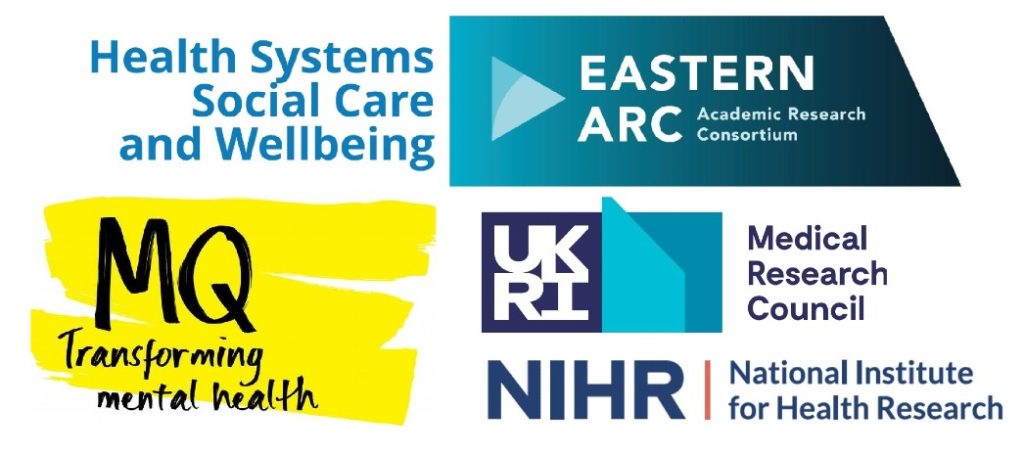 It’s widely recognised that ‘mental health research is underfunded relative to the burden of disease’ (Woelbert, Kirtley, Balmer, Dix 2019). According to the MQ Funding Landscape Analysis 2014-17, around £125m of research funding is spent annually on mental health conditions.
It’s widely recognised that ‘mental health research is underfunded relative to the burden of disease’ (Woelbert, Kirtley, Balmer, Dix 2019). According to the MQ Funding Landscape Analysis 2014-17, around £125m of research funding is spent annually on mental health conditions.On 16 February we hosted an online discussion around these issues with colleagues from MQ, MRC and NIHR. The recording for the event is available here (mp4), and slides for each of the talks are available below.
- Research Funding for Mental Health, and the Work of MQ (pdf)
- Lea Milligan, CEO of MQ
- MRC Mental Health Research (ppt)
- Karen Brakspear, Head of Programme – Mental Health
- NIHR Mental Health Research (ppt)
- Kathryn Abel, NIHR Clinical Research Network National Specialty Lead for Mental Health
- Research Funding for Mental Health, and the Work of MQ (pdf)
-
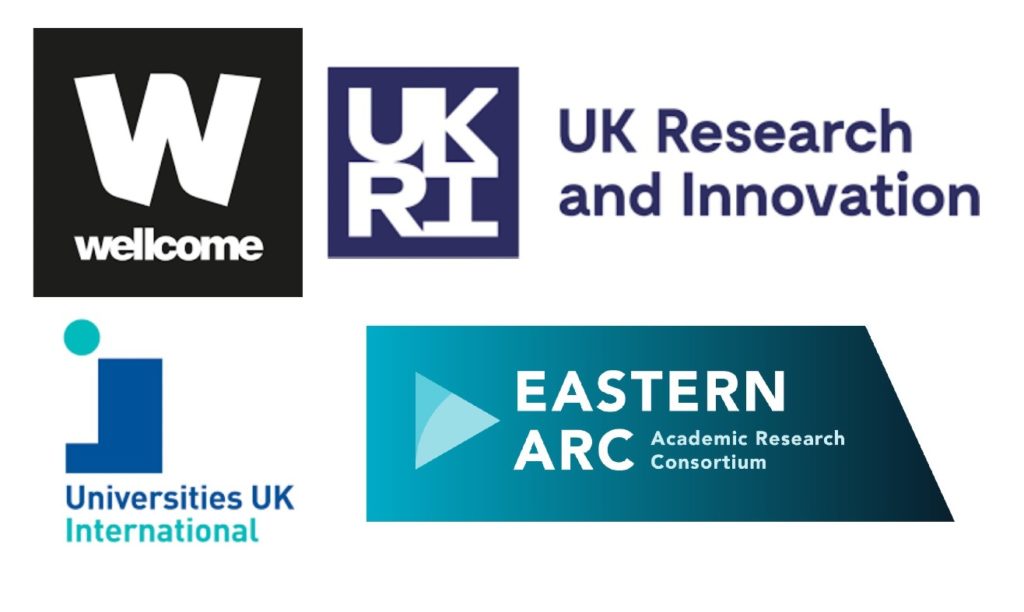 Official Development Assistance (ODA) funding has allowed our research to have an impact beyond academia, and beyond the UK.
Official Development Assistance (ODA) funding has allowed our research to have an impact beyond academia, and beyond the UK.It has enabled us to think globally, and to work for the benefit of the global community, particularly in overcoming deep-seated socio-economic problems and developmental challenges.
However, will a shift in government policy lead to these achievements being undermined or reversed?
On 3 December 2020 Eastern Arc hosted a webinar to explore the future of ODA funding following the government’s spending review and R&D Roadmap.
Slides from the event
Slides from the event are available below:
- Introduction (Google Slides)
- Phil Ward, Director, Eastern Arc
- UUKi’s report on the impact of ODA funding (ppt)
- Dajana Dzanovic, Head of Strategic Partnerships, UUKi
- ODA Funding in UKRI (ppt)
- Jacqui Williams,Head of Partnerships and Programmes, International, UKRI
- Wellcome’s report on the UK’s role in global research (ppt)
- Simon Hall, Senior Policy and Advocacy Officer, Wellcome Trust
- Introduction (Google Slides)
-
 In June 2020 Public Health England finalised a list of identified research gaps and priorities around healthy ageing.
In June 2020 Public Health England finalised a list of identified research gaps and priorities around healthy ageing.These were identified through stakeholder surveys and discussions earlier this year. The list will be used to inform the development of PHE’s healthy ageing programme, as well as prioritising the work of PHE’s Older Adults team in supporting researchers in preparing bids and disseminating findings.
This webinar was an opportunity to look in more detail at these priorities, the thinking behind them and how they will be used in the future.
Bernie Hannigan, PHE’s Director of Research Translation and Innovation, introduced the work of PHE, and was joined by Helen Brock, Programme Manager for Adults and Older Adults in PHE’s Life Course Team, who explained the gap analysis and the function of the research priorities.
Slides
- Phil Ward: Introduction and Links for Further Information (ppt)
- Bernie Hannigan: The Research Role of Public Health England (ppt)
- Helen Brock: PHE Healthy Ageing Research Gap Analysis (ppt)
Recording

